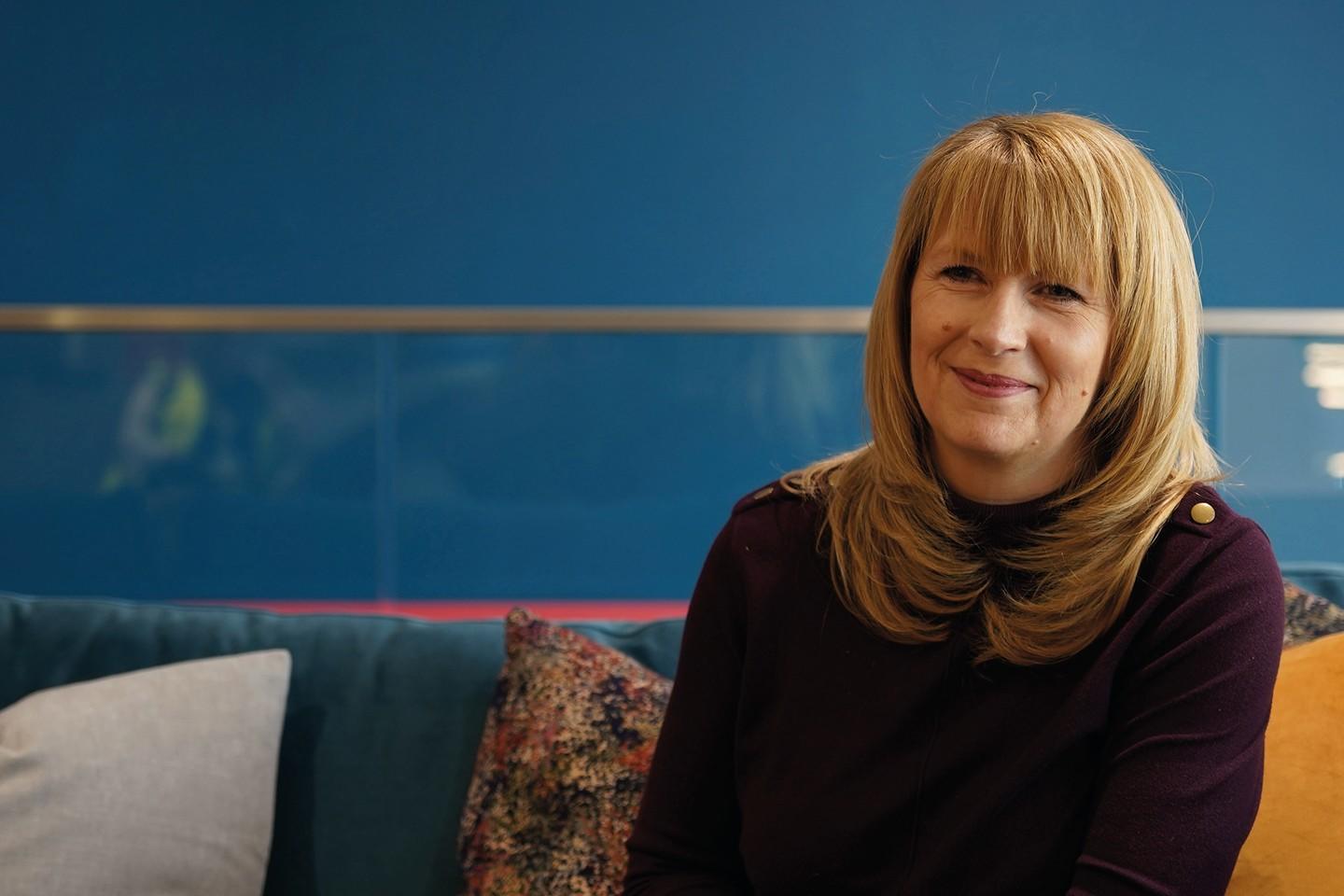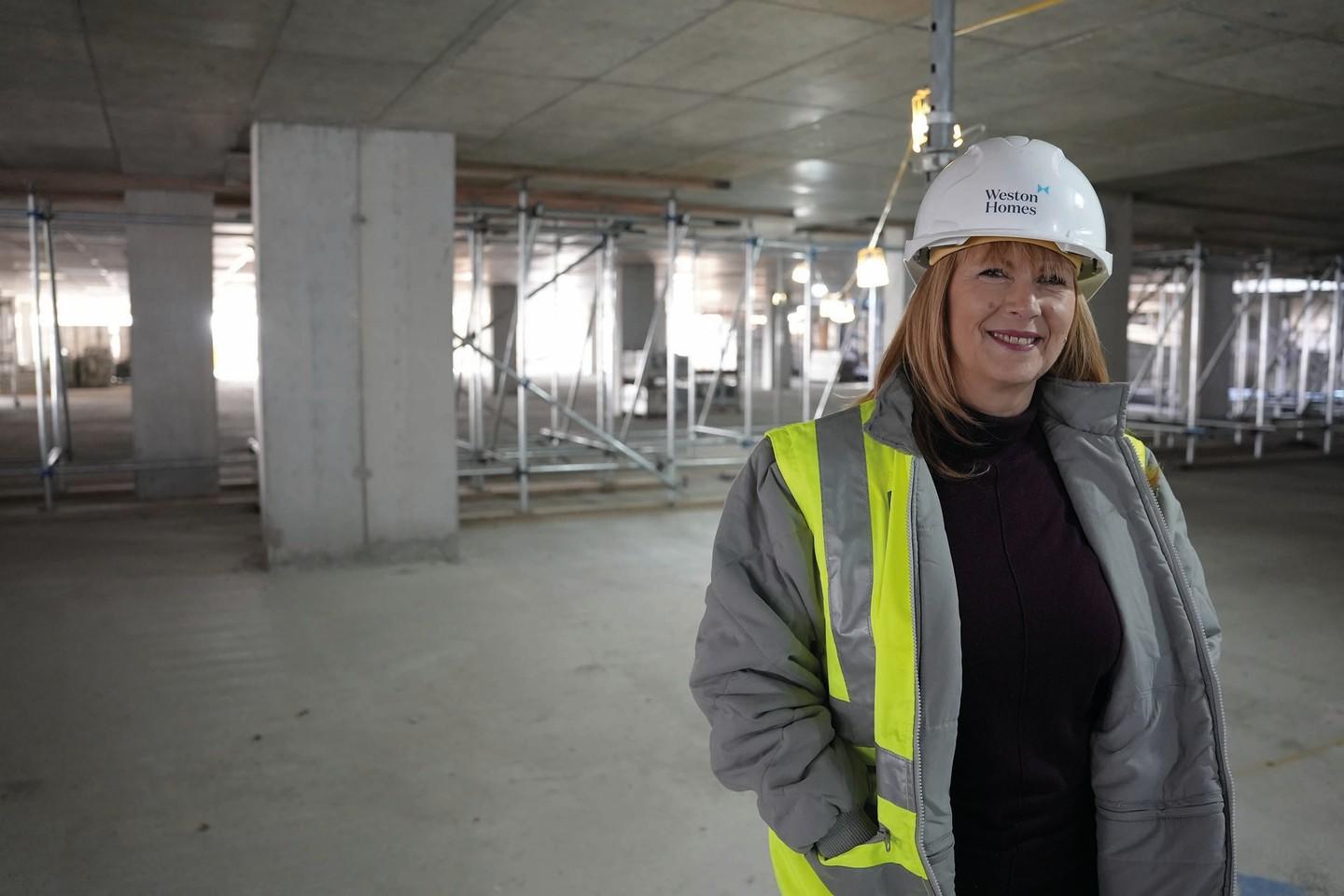
Informed, committed and inspirational, eco-expert Heidi Pateman is truly the poster girl for sustainability. In a long career, she has helped deliver thousands of energy-saving new builds for Weston Homes. But what about her own home? Is it “do as I say” all the way?
Living up to her own high standards is not easy, as Heidi is the first to admit. She doesn’t have a shiny, airtight new home that comes with built-in insulation, a heat pump, double glazing and energy-saving appliances and lights.
Home for Heidi, her husband and their art student son is a Victorian house in Ware, Hertfordshire, their daughter, a microbiologist, now having flown the nest. Built in 1886, the house was “virtually derelict” when the family took it over, but Heidi has loved restoring it and prizes its “wonky” features.
There are homeowners nationwide who will recognise immediately that making a period home energy efficient is a mammoth enterprise. Of around 29 million homes in the UK, nearly a third were built before the First World War, mostly during the 19th century.
As Heidi explains: “We’ve extended the property a fair bit and of course, all the new parts are extremely well insulated. But regrettably there’s almost a complete lack of insulation in the old house.”
Nevertheless, they’ve managed to improve the windows, doors, roof, heating and lighting. But insulating the solid walls was just not possible. “It would mean losing many of the period features, which were the main reason we bought the property in the first place.” Nor can they fit solar panels on the roof. This old house, albeit improved, still costs “a fortune” to heat. “So, to make up for it, I follow my family around turning off lights, much to their annoyance.”

But the biggest challenge is yet to come: moving away from gas central heating. To use a heat pump effectively, a building must be well insulated – and that is particularly difficult in the case of an old property. So Heidi is considering a hydrogen-ready boiler, the very latest technology, when they become available.
That said, in her everyday life, Heidi is a shining example. She will shortly get an electric car and is “fanatical about recycling”. She tries hard only to buy British food in season, “to cut food miles”.
Indeed, growing her own food is a real passion, in a large vegetable garden that for eight months of the year supplies her household with organic fruit and veg, “with enough for friends and family, too”. Here, she finds a bit of calm away from a hectic schedule.
“I can’t recommend enough the huge benefit of growing your own fruit and veg. You can do a lot in a small space in any garden/patio/balcony. Apart from the obvious financial and environmental benefits, I find it brilliant for my mental and physical health.” And Heidi is a real waste warrior, scooping up leftovers for new meals.
Living sustainably isn’t easy with a busy life, a family and an old home. “It takes effort – but in my job, it would be hypocritical not to try!” She is, however, only human. “At the persistence of my son, I’ve tried to cut back on buying new clothes, too, but I have to say that sometimes a bargain gets the better of me.
“And I just can’t do away with my tumble drier – although I have the excuse that hanging up wet clothes indoors can very easily cause damp and mildew, especially in an old building that doesn’t have modern ventilation systems.”
Is sustainability, with its change of lifestyle, too much of a burden for the average family? Heidi doesn’t think so. But she’s not judgmental and is completely frank about her own blackspots – though she can’t do much about many of those.
To end, here’s a rallying cry from a woman who has been ahead of the game for years. “We can all think about how we use energy and water, and make small changes to benefit the environment,” says Heidi. “Recycling is easy and everybody has at least a windowsill to grow something green. Together we can make a difference.”